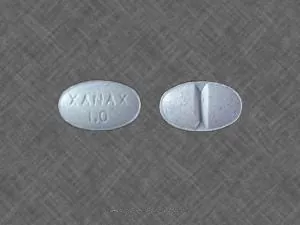Valium, known by its generic name diazepam, is a well-known medication in the benzodiazepine class, commonly prescribed to manage various conditions, including anxiety, muscle spasms, and seizures. The 10mg dosage of Valium is a significant strength and is typically prescribed in situations where a higher dose is necessary. In this comprehensive guide, we will explore Valium 10mg, including its uses, dosage, potential side effects, and essential precautions to keep in mind.
I. Understanding Diazepam (Valium)
Diazepam, commonly marketed under the brand name Valium, is a benzodiazepine medication known for its calming and sedative effects. Benzodiazepines act on the central nervous system, enhancing the effects of the neurotransmitter gamma-aminobutyric acid (GABA), which helps reduce brain activity and alleviate anxiety, muscle tension, and seizures.
Valium 10mg is a higher dose of this medication, typically reserved for specific cases, such as severe anxiety, panic disorders, or muscle spasticity, and should be administered under the guidance of a healthcare professional.
II. Valium 10mg Dosage
The appropriate dosage of Valium varies according to individual factors, such as the condition being treated, the patient’s age, and their response to the medication. Valium is available in various strengths, and the 10mg dosage is considered a relatively high strength.
The typical starting dosage for Valium to treat anxiety or muscle spasms is lower, often ranging from 2mg to 10mg taken two to four times a day. A dose of 10mg is usually considered a high dose and is reserved for situations where lower doses have proven ineffective or when dealing with severe conditions.
It is critical to adhere to your healthcare provider’s instructions regarding dosage. Self-administering higher doses or taking Valium without a prescription can lead to dependence, addiction, and an increased risk of side effects.
III. Mechanism of Action
Valium, like other benzodiazepines, primarily affects the brain by increasing the effects of GABA, the inhibitory neurotransmitter. This mechanism helps reduce the excessive brain activity associated with anxiety, muscle tension, and seizures. Valium’s calming and sedative effects are attributed to this modulation of GABA.
The medication is typically rapidly absorbed when taken orally and has a relatively long half-life, which can contribute to its extended duration of action.
IV. Uses of Valium 10mg
Valium 10mg is commonly prescribed to treat various medical conditions, including but not limited to:
- Anxiety Disorders: Valium 10mg dosage, is used to alleviate severe anxiety symptoms and help individuals regain control over their lives.
- Panic Disorders: Panic disorders are characterized by recurrent, sudden episodes of intense fear and discomfort, often accompanied by physical symptoms like rapid heart rate, sweating, and shortness of breath. Valium can help reduce the frequency and intensity of panic attacks.
- Muscle Spasticity: Valium is also used to manage muscle spasticity, which can occur due to conditions like cerebral palsy, multiple sclerosis, or spinal cord injuries. The 10mg dosage may be necessary in cases of severe muscle spasticity.
- Seizures: Valium, in its various forms, including rectal gel and intravenous injections, is sometimes used to manage seizures, including prolonged or recurrent seizures. This is typically administered under medical supervision.
It’s important to note that Valium is not intended for the treatment of everyday stress or situational anxiety. It should only be used when prescribed by a healthcare provider for specific conditions.
V. Valium Side Effect
Like all medications, Valium can have side effects. While not everyone will experience these side effects, it is essential to be aware of them. Common side effects of Valium may include:
- Drowsiness
- Dizziness
- Fatigue
- Impaired coordination
- Memory problems
- Increased saliva production
- Constipation
- Changes in appetite
These side effects are typically mild and may diminish as the body adjusts to the medication. However, more severe side effects can occur, and if experienced, immediate medical attention is necessary. Serious side effects of Valium may include:
- Allergic reactions (rash, itching, swelling, severe dizziness, difficulty breathing)
- Mood changes (e.g., agitation, aggression)
- Hallucinations or confusion
- Suicidal thoughts
- Severe drowsiness or weakness
- Uncontrolled muscle movements or tremors
It’s crucial to note that Valium, like other benzodiazepines, has the potential for dependence and withdrawal symptoms, especially when used at higher doses or for extended periods. Abrupt discontinuation can lead to withdrawal symptoms, including anxiety, insomnia, and seizures. To avoid these issues, it is important to follow the healthcare provider’s recommendations closely.
VI. Precautions and Warnings
When considering Valium as a treatment option, it’s vital to keep the following precautions and warnings in mind:
- Dependency Risk: Valium has a potential for dependence, and its use should be closely monitored by a healthcare provider to avoid misuse, addiction, and tolerance.
- Withdrawal: Discontinuing Valium should be done gradually, under medical supervision, to prevent withdrawal symptoms and potential complications.
- Pregnancy and Breastfeeding: Valium is generally not recommended during pregnancy or breastfeeding due to potential risks to the developing fetus or the infant.
- Alcohol and Other Substances: Combining Valium with alcohol or other central nervous system depressants can lead to dangerous respiratory depression and should be avoided.
- Cognitive Impairment: Valium can impair cognitive and motor skills, so individuals taking this medication should avoid activities that require mental alertness, such as driving or operating heavy machinery.
- Psychiatric and Behavioral Effects: Some individuals may experience paradoxical reactions to Valium, including increased anxiety, agitation, aggression, or other behavioral changes.
- Medication Interactions: Valium can interact with other medications, potentially increasing or decreasing their effects. Always inform your healthcare provider about all the medications you are taking.
Conclusion
Valium 10mg is a potent medication used to manage various medical conditions, primarily anxiety, panic disorders, muscle spasms, and seizures. While it can effectively alleviate symptoms, it should be used cautiously, with strict adherence to a healthcare provider’s guidance. The higher dosage of Valium should be considered only when recommended by a healthcare professional, as it carries an increased risk of dependence and other potential side effects. Mental health and physical well-being are essential aspects of overall health, and Valium can be a valuable tool when used responsibly and in conjunction with other therapeutic interventions. If you believe Valium may be an appropriate option for you or someone you know, consult a healthcare provider to determine the best course of action and monitor for potential side effects and dependence issues.














Gibbs Hobs –
Fast and efficient service. Never had any problems with their company or ordering process. They have a vast array of products available with very competitive pricing.
Gardner –
Prompt delivery, well packaged. Good availability and at a lower price than the high street pharmacy
Eliza Beth –
Very please with everything didn’t take to long to come well packed so there would be no damage 10 out of 10 shall used again thankyou
Davies –
I have used walgreenusa good few times and find that they provide a professional and courteous service .
All my deliveries come swiftly , highly recommended.
Samuel Ethan –
It provides a deeper sense of calm and relaxation without causing excessive drowsiness. It helps relax tense muscles, allowing me to move more comfortably. Shipping so fast and price affordable easy payment mode.